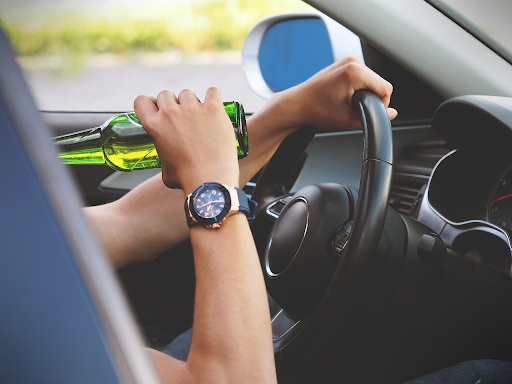 Drinking and driving laws can seem complex, especially when it comes to understanding the distinction between DWI and DUI. From exploring these terms at a fundamental level to detailing specific state laws, we’ll break down what you need to know about these crucial aspects of traffic law, and provide some tips on how to drink responsibly as well.
Drinking and driving laws can seem complex, especially when it comes to understanding the distinction between DWI and DUI. From exploring these terms at a fundamental level to detailing specific state laws, we’ll break down what you need to know about these crucial aspects of traffic law, and provide some tips on how to drink responsibly as well.
Understanding the Basics: DWI and DUI Explained
Let’s start at ground zero. DWI stands for Driving While Intoxicated while DUI is short for Driving Under the Influence.
At a glance, they seem to mean the same thing, which is operating a vehicle under impairment created by substances like alcohol or drugs. However, as we’ll discuss next, their legal meanings can vary significantly depending on your location.
The Legal Differences Between DWI and DUI
So what’s the difference between these two charges? In some places, there’s no legal distinction, and both terms are used interchangeably to describe impaired or drunk driving.
However, in states where distinctions exist, it often comes down to the level of intoxication for alcohol-related offenses. In Texas, for example, a DWI is viewed as more egregious than a DUI and carries stronger penalties. A similar approach is taken in Colorado where DUI generally refers to lesser impairment levels compared to DWI offenses.
Another differentiation can be that DWI is associated purely with alcohol consumption while DUI involves other substances as well, like prescription drugs or illegal narcotics.
The Drinking and driving differences may seem subtle but they can have significant impacts on penalties if you’re charged. Understanding these nuances can help you navigate potential trouble. And if driving is your job, you want to be in the loop here.
Example: What to Expect from DWI Charges in New Jersey
Let’s put this into perspective with an example. In New Jersey, laws can be quite stringent with DWIs. The state does not differentiate between a DUI and a DWI; both entail harsh penalties that increase with each offense.
For first-time DWI offenses, repercussions could include fines up to $500, mandatory alcohol education programs and even suspension of your driver’s license for several months. Subsequent violations see these penalties rise exponentially. Notably, jail time becomes a real possibility with further offenses, or if there is bodily harm involved.
That’s why it is essential to have experienced representation if charged, like having one of the seasoned DWI lawyers in Freehold, NJ by your side who understand local court systems and can provide a solid defense strategy.
Prevention is Always Better than Cure: Tips for Responsible Drinking
There’s a simple but profound truth to remember, taking certain precautions can help you avoid unwarranted Drinking and driving charges. Here are some to consider:
- Designate a Sober Driver: If you’re planning to drink, ensure someone stays sober to drive home.
- Use Rideshare Apps: Uber, Lyft and similar services can provide a safe ride if you’ve consumed alcohol.
- Stay Overnight: If possible, plan your evening so that you don’t have to travel after drinking at all.
Being proactive about responsible consumption not only safeguards your legal standing, but also promotes safety on our roads, which is arguably the most important point.
The Last Word
Understanding the legal nuances between DWI and DUI can truly make a difference should you ever face these charges.
Through being informed, making responsible choices while drinking, and having solid representative support when needed, you’re best equipped to navigate any potential legal challenges.
Info is power, so ensure your actions reflect this knowledge, and aim to stay on the right side of the law at all times.










